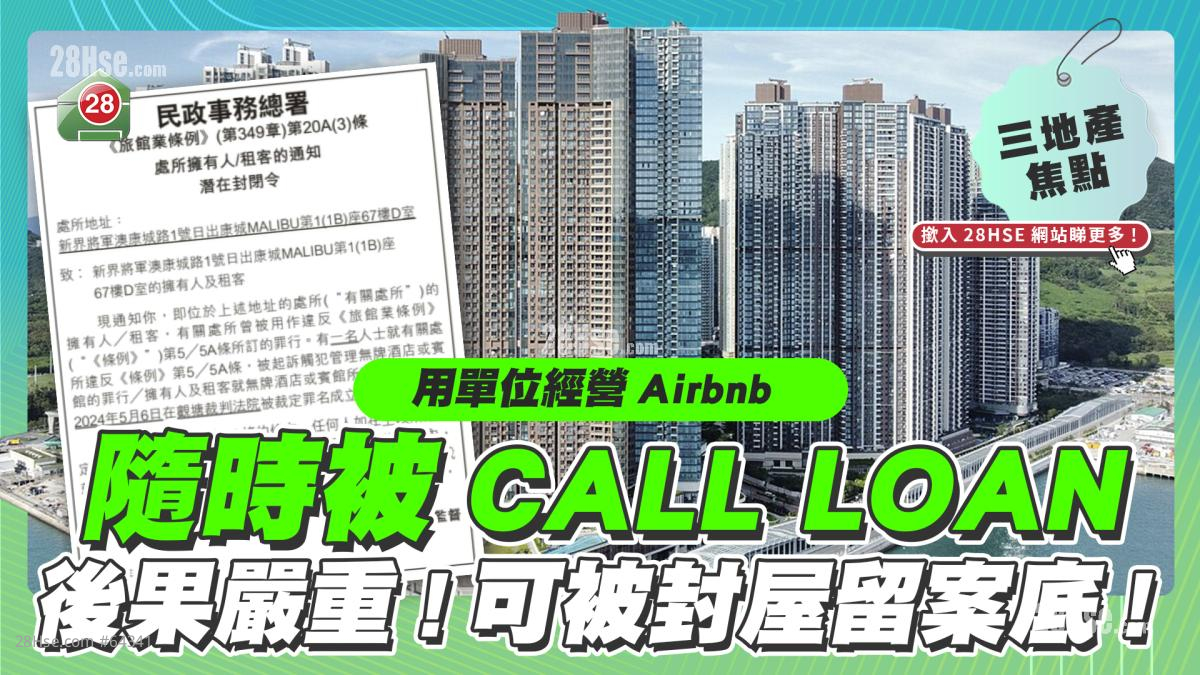- Home
- News
- Expert Blog
- Wed Property Focus
- Using Your Property As An Airbnb Without A License: Risks And Legal Consequences
Recently, a unit at Malibu Lohas Park was rented out on Airbnb without a license, leading to legal issues for the owner. The owner faced charges under the Hotel and Guesthouse Accommodation Ordinance for operating an unlicensed establishment.
This incident has prompted the Home Affairs Department to issue warnings through newspaper publications, notifying owners and tenants of potential violations under sections 5/5A of the ordinance. The warning also mentioned that if the unit commits another offense within the next 16 months, it could be sealed for six months.
The upper-floor unit in question, unit D in Block 1B of Malibu Lohas Park, has a saleable area of 545 square feet. It was sold in June of 2018 for HK$9.291 million, with an average price per square foot of HK$17,048. According to HSBC's property valuation tool, the unit is now estimated at HK$8.93 million, approximately a 4% decrease from the purchase price.
Indeed, many property owners list their units on Airbnb as guesthouses. To curb illegal hotel operations, the Home Affairs Department conducts regular online inspections and can even apply for search warrants, allowing law enforcement to enter suspected premises to inspect or collect evidence.
The consequences of being caught operating or managing an unlicensed hotel or guesthouse are severe. It is a criminal offense that results in a criminal record for the owner or tenant unless a legal exemption can be proven. The maximum penalty could be a fine of HK$500,000 and imprisonment for three years. Additionally, any record of the premises being used as an unlicensed hotel or guesthouse will be registered at the Land Registry.
Furthermore, property owners face systemic consequences. If the unit is mortgaged, typical residential mortgage contracts specify that the property must be used for residential purposes only. Using the unit for short-term rental as a hotel violates these terms, and the bank could call a mortgage loan, demanding immediate repayment. If the owner cannot repay, the bank may repossess and auction the property.
Operating an illegal guesthouse also affects insurance, including home insurance and third-party insurance for the building. When applying for home insurance, a declaration must be signed stating that the building is for permanent residential use. Violating this condition generally results in the insurance company denying coverage.
To minimise risks in case of accidents, the property management and the Owners' Corporation must purchase third-party insurance for the residents and ensure the policy remains valid. However, changing the use of residential units could lead to claims being denied.
Lastly, converting a unit into an illegal guesthouse requires the owner to pay additional taxes. According to the Inland Revenue Ordinance, rental income is subject to property tax, and profits from business activities are subject to profits tax. Failure to report these to the Inland Revenue Department constitutes a violation of the law.
Like

